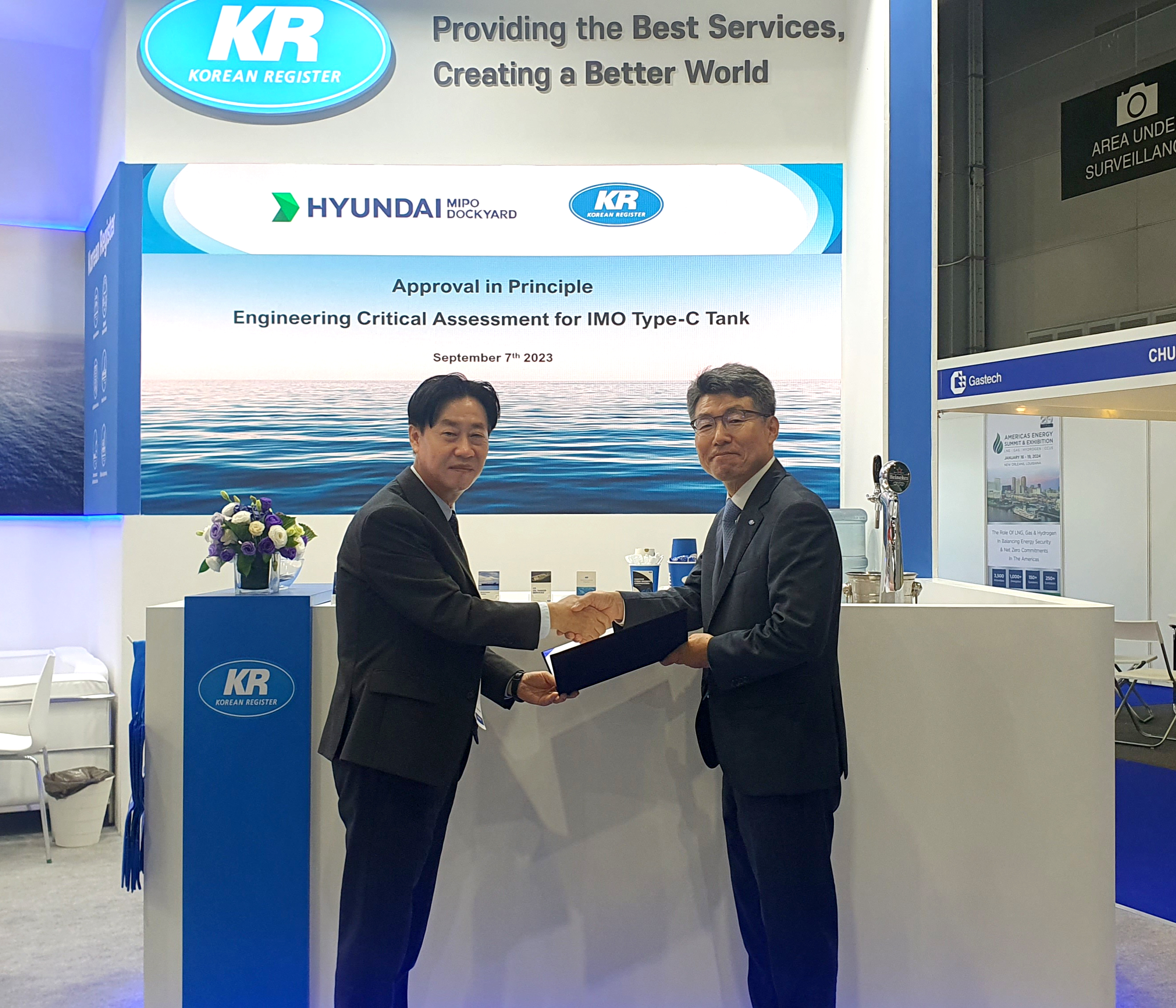KR approves LCO2 cargo tank design developed by Hyundai Mipo and HD KSOE

KR (Korean Register) has granted an Approval In Principle (AIP) for a liquefied carbon dioxide (LCO2) cargo tank design, developed by Hyundai Mipo Dockyard (HMD) and HD Korea Shipbuilding & Offshore Engineering (HD KSOE), during GASTECH 2023, held in Singapore on 7 September.
This AIP is the outcome of a successful collaborative joint project involving KR, HMD and HD KSOE. HMD designed the cargo tank, HD KSOE conducted an engineering critical assessment (ECA), and KR ensured the design’s suitability by reviewing classification rules and international regulations.
The development of the LCO2 cargo tank underscores the commitment of these three companies to reduce carbon emissions, aligning with the global push for carbon neutrality and a sustainable future. Notably, the demand for LCO2 carriers is projected to rise, as carbon capture, utilization, and storage (CCUS) technologies are poised to play a pivotal role in reducing global carbon dioxide emissions.
To liquefy carbon dioxide for efficient mass transportation, it is essential to maintain low temperatures and high pressures. Achieving economical transportation hinges on considering the triple point of carbon dioxide, where the temperature and pressure allow the three phases of gas, liquid, and solid to coexist in equilibrium. Special attention must be devoted to preventing carbon dioxide from undergoing phase changes during operation. Consequently, designing cargo tanks necessitates advanced technology and expertise.
The newly developed LCO2 cargo tank design incorporates an independent IMO Type-C tank to maintain the triple point of carbon dioxide. The structural safety of the cargo tank was further verified by applying the ECA evaluation technique. Moreover, its design enables the loading of a larger cargo capacity compared to existing vessels of similar size, promising even more cost-effective operations.
KIM Yeontae, Executive Vice President of KR’s Technical Devision, commented, “Through this AIP, we have laid an important foundation for commercializing the ECA evaluation method and the construction technology for LCO2 cargo tanks. KR will work to support the development of CCUS-related technology as well as other decarbonization response technologies.”
Representatives of HMD and HD KSOE said, “The newly developed LCO2 cargo tank is proof of our efforts to reduce carbon emissions at this time of transition towards decarbonization, and the essence of our eco-friendly technology and expertise. We will continue to develop innovative technologies for a sustainable future.”
ENDS